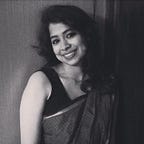Secular beginnings, sacred calling
Why these educated, secular women travelled hundreds of miles to become part of an Hasidic Jewish community
It is the day after Yom Kippur, the Day of Atonement, and the girls are wearing make-up.
They had spent the previous day in and out of the synagogue, fasting and praying until the blast of a ram’s horn signalled it was time to eat and drink. Eliana Amundson, 25, had woken that morning dreading going out without first showering, brushing her teeth, and putting on make-up—all of which are forbidden on the most sacred day of the Jewish year.
“But then there was comfort in knowing at least everyone else would look the same,” she said with a laugh.
Eliana is among a small group of young women who, having grown up as secular, assimilated Jews, are now studying and living at Machon L’Yahadus. It’s a small school tucked in the row of townhouses on Eastern Parkway, a short walk from the Lubavitcher World Headquarters.
They come from different parts of the country — and from as far away as Ukraine, Israel, Venezuela, Uruguay, and Moldova. Each of them has left behind their family, their home, their friends to journey to Brooklyn to become members of the Hasidic community.
Among them are Eliana, who grew up in Los Angeles in a family that includes six lawyers and a judge. Her classmate Nechama Leah Kuzman, 25, fled Serbia with her family as a young child and only recently converted to Judaism. Like Eliana, Nechama Leah is a college graduate. Their classmate, Risa Mond, 18, left her high school in Dallas to move to Crown Heights.
Each says she has found a new home, far from everything and everyone she’d known.
“When you live in such a community you can just walk next door to your friend’s house and you just walk in,” Nechama Leah says of Crown Heights on the Sabbath. “Today is the day we’re all going to spend time with one another.”
